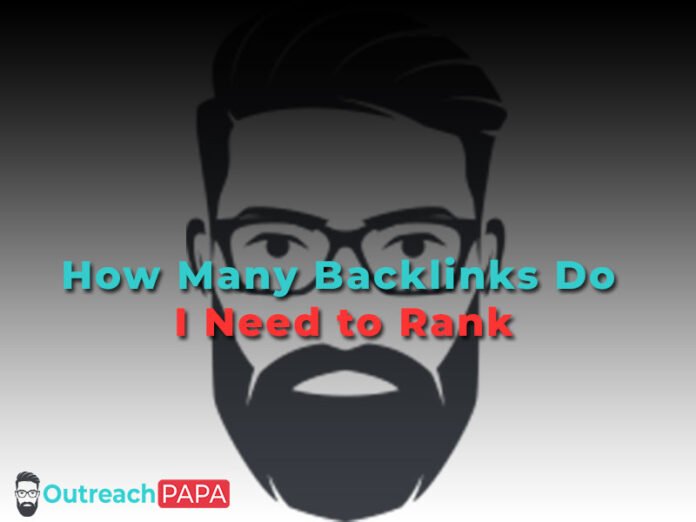Backlinks are an essential aspect of search engine optimization (SEO) that website owners cannot overlook. The number of backlinks a website has is often a crucial factor in determining its ranking on search engines. However, how many backlinks do you need to rank? Best website for links is Linkhouse.
This article explores this question and provides useful insights to help you optimize your website for search engines.
As the internet continues to grow, businesses and individuals alike are leveraging the power of the internet to reach a broader audience. However, with over 1.8 billion websites on the internet, it’s challenging to get your website to rank on the first page of search engine results pages (SERPs). While there are several factors that determine a website’s ranking on SERPs, backlinks remain a crucial element of SEO.
How Many Backlinks Do I Need to Rank?
Here are the details of how many backlinks do i need to rank.
What Are Backlinks, and Why Are They Important?
Before diving into how many backlinks you need to rank, it’s essential to understand what backlinks are and why they are crucial to SEO. A backlink, also known as an inbound link or incoming link, is a hyperlink that links from one website to another. The website that links to another website is known as the referring website, while the website that receives the link is known as the receiving website.
Backlinks are important to search engines because they act as a vote of confidence for the receiving website. The more high-quality backlinks a website has, the more authoritative and credible it appears to search engines. As a result, search engines are more likely to rank the website higher on SERPs, leading to increased organic traffic and visibility.
What Are the Different Types of Backlinks?
Not all backlinks are created equal. There are several types of backlinks, and some are more valuable than others. Here are the most common types of backlinks:
Editorial Backlinks: Editorial backlinks are links that are naturally placed within the content of a website. They are the most valuable type of backlink because they are the result of another website owner finding your content valuable and linking to it.
Guest Post Backlinks: Guest post backlinks are links that are included in a guest post on another website. These links are valuable because they are typically included in the author’s bio or within the content of the guest post.
Directory Backlinks: Directory backlinks are links that are included in online directories. These links are less valuable than editorial or guest post backlinks, but they can still help improve a website’s SEO.
Forum Backlinks: Forum backlinks are links that are included in forum comments or signatures. These links are typically considered low-quality and are not as valuable as other types of backlinks.
How Many Backlinks Do I Need to Rank?
Now that you understand what backlinks are and the different types of backlinks, let’s answer the question: how many backlinks do you need to rank?
The answer is not straightforward. The number of backlinks a website needs to rank depends on several factors, such as the website’s niche, competition, and the quality of the backlinks. In general, websites that have more high-quality backlinks tend to rank higher on SERPs.
It’s worth noting that it’s not just about the number of backlinks but also the quality of the backlinks. A few high-quality backlinks from authoritative websites are more valuable than hundreds of low-quality backlinks from spammy websites.
Another important factor to consider is the anchor text of the backlinks. The anchor text is the text that is hyperlinked, and it’s essential to use relevant and natural anchor text to avoid being penalized by search engines.
How to Get High-Quality Backlinks?
Getting high-quality backlinks is crucial to improving your website’s SEO. Here are some effective ways to get high-quality backlinks:
Create high-quality content: Creating high-quality content is one of the best ways to attract natural editorial backlinks. When you produce valuable and informative content, other website owners are more likely to link to it.
Guest posting: Guest posting is an effective way to get high-quality backlinks. When you write a guest post for another website, you can include a link back to your website in the author bio or within the content of the guest post.
Broken link building: Broken link building involves finding broken links on other websites and offering to replace them with a link to your website’s relevant content.
Resource page link building: Resource page link building involves finding resource pages on other websites and suggesting your content to be included on those pages.
Outreach: Outreach involves reaching out to other website owners and asking them to link to your content. This method requires a bit of effort, but it can be an effective way to get high-quality backlinks.
Conclusion
In conclusion, the number of backlinks you need to rank depends on several factors, such as the website’s niche, competition, and the quality of the backlinks. While it’s not just about the number of backlinks, having more high-quality backlinks can improve your website’s SEO and ranking on SERPs.
To get high-quality backlinks, focus on creating high-quality content, guest posting, broken link building, resource page link building, and outreach. By following these strategies, you can improve your website’s SEO and increase its visibility on search engines.




